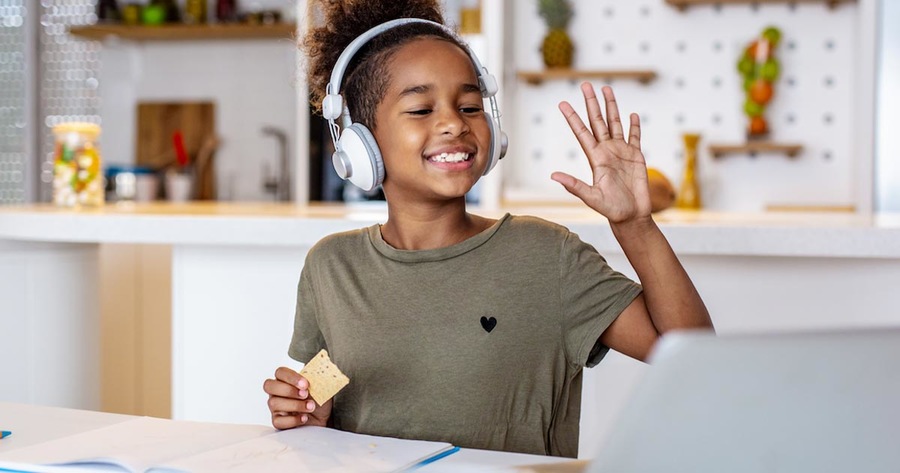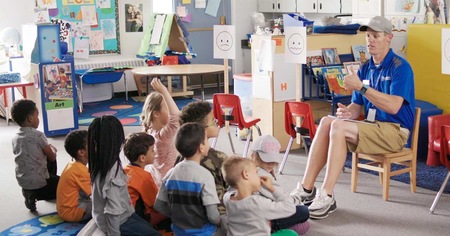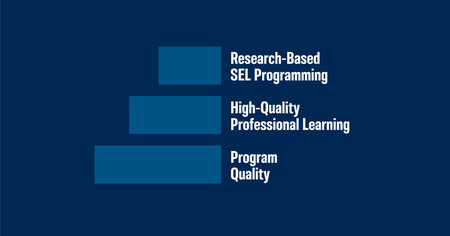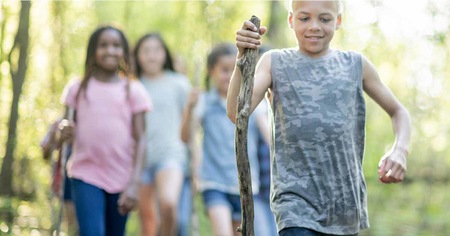While social-emotional learning (SEL) is always an important part of children's development, during difficult and uncertain times it's particularly critical for youth to understand their emotions, have empathy for others, ask for help when they need it, and create positive relationships.
Long focused on youth development and community building, out-of-school time (OST) providers are stepping up to the task of supporting youth social-emotional needs. And while facilitators' OST contexts have changed with remote learning and social distancing, the goals of their work have not. With intentionality and planning, facilitators can adapt programming in ways that preserve and enhance interactions with youth and support their social-emotional development.
Identifying priorities can help guide work in unfamiliar territory. Fortunately, SEL, youth development, remote learning, and continuous improvement are topics that have been studied and practiced for decades. Lessons from this work can help OST facilitators take a clear-eyed approach to supporting youth and their communities during the pandemic.
Using our research- and practice-based perspectives, we've identified six priorities for OST facilitators.
1. Focus on building relationships.
Whether from 6 feet apart or through a screen, you're building a real community with real relationships. Social distancing and remote communication eliminate some relationship-building strategies from your toolkit (high-fives, for example, are out), but you can continue to focus on research-based approaches to building relationships, such as elevating young peoples' voices, pushing their thinking, and providing authentic support. Make time for youth to share freely and practice leadership, challenge them to think deeply, and connect with them and their families. During a pandemic or otherwise, building positive relationships should always be a top priority when working with youth.
2. Set norms and rules.
Whatever adjustments have been made, the setup probably feels new to you and to youth. Working together to set expectations lays an important foundation for any community, and it's important to specifically discuss and agree to norms and rules for your new arrangement. How should you and youth pass objects? What are the group's expectations around handwashing and other cleaning tasks? Groups using remote learning may agree to expectations about when young people should be on- or off-screen and muted or not. Will youth raise their hands when they want to speak? As the group faces successes and challenges, you should collectively revisit and revise these norms and rules.
3. Identify the objective and adapt around it.
Focus your work by first identifying what you want youth to learn in an activity and then making logistical adaptations to support that goal. Example: An activity's objective might be for youth to identify an emotion-regulation strategy that works for them. You could adapt the activity for limited materials or space, or for remote interactions. Instead of moving around the room, youth could wave their arms or jump up and down. Or they could "pass" an object by holding up an object at home. In any scenario, youth still need to develop concrete social-emotional skills. Get creative, but don't lose sight of the goal.
4. Prepare, prepare, prepare!
Preparation is similar across education environments—it's always critical for maintaining focus and fun, it's largely front-loaded, and it becomes second nature with time. But it's important to consider new ways to prepare for socially distanced or remote interactions. Think through your plans step by step, with a critical eye. What could go wrong? What if youth don't adhere to social-distancing guidelines? What if there are materials shortages or tech challenges? How can you prevent or respond to potential issues? It may be useful to do practice sessions with family members, friends, or colleagues, to help identify and plan for possible challenges. Preparation will help you feel more confident and ready to adjust activities as needed.
5. Use new opportunities.
Socially distanced and remote learning can come with challenges, yet new arrangements can also present new opportunities. Challenge youth to take leadership roles in creating and adapting social-distancing activities. If you're working remotely, use digital tools creatively: Group chats, polls, digital whiteboards and screenshare can open new doors. Remote learning also presents new opportunities to build bridges between young peoples' experiences in OST and at home. Youth can continue working on a project after an online OST session ends, or immediately share what they've learned with their family. Focusing on new—rather than lost—opportunities will be good for you, youth and the communities you serve.
6. Leverage the community to learn and improve.
The world is quickly developing experience in socially distanced and remote learning, and budding experts are everywhere. Youth, their families, other OST facilitators and school-based teachers can all provide valuable feedback. Make it a habit to ask these groups—especially youth—about their experiences and use that learning to improve your programming. (Social media can be an effective way to stay connected and share learning with families and professional networks, especially if families have limited internet access.) Most people are happy to share their experiences. When you ask for help, it strengthens relationships while helping you learn how to best serve your communities. It's a win-win!
There's no doubt: The COVID-19 pandemic has introduced new uncertainties and ways of life. Not least among these shifts is a move to more physically distanced interactions and relationship building. Fortunately, the OST field already has plenty of knowledge that can guide facilitators so they can do what they do best—build and strengthen communities by nurturing relationships and supporting young peoples' SEL.
Tricia Maas is a research scientist at Committee for Children. Committee for Children is the creator of Second Step® Out-of-School Time, a new, research-based, social-emotional learning program designed for kindergarten through grade 5 in before-school and afterschool settings. Learn more at secondstep.org/OST.
Jaime Garcia is the executive director of the Extend-A-Care YMCA Branch of the YMCA of Austin in Texas. The YMCA of Austin is a leading nonprofit committed to strengthening community by connecting all people to their potential, purpose and each other. The Extend-A-Care YMCA branch is the largest childcare provider in the Austin area, delivering afterschool, summer camp, and infant and preschool programs. Learn more at eacymca.org.
Photo courtesy of Committee for Children.




